I’ve read a lot of books in the last couple of years. These helped me to understand the process of deconstructing and reconstructing my personal faith, to more closely align with the actual teachings in the Bible. I’ve included the Amazon blurb for each, as well as a link to the Amazon listing for the book.
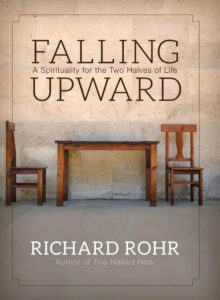
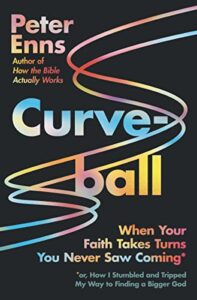
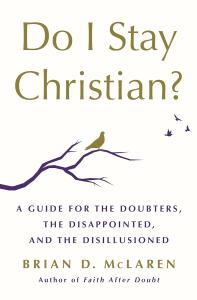
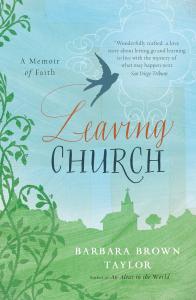
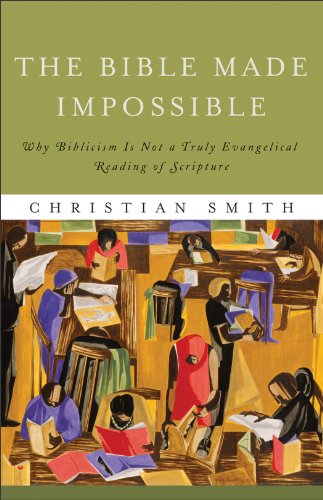
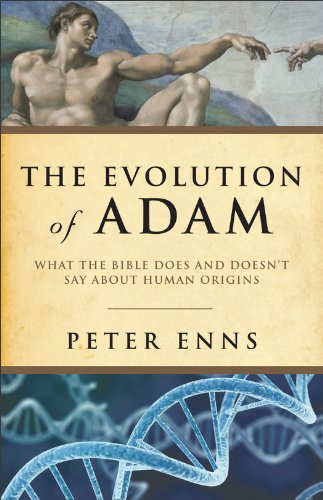
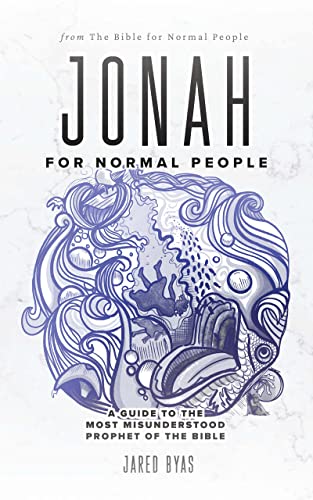
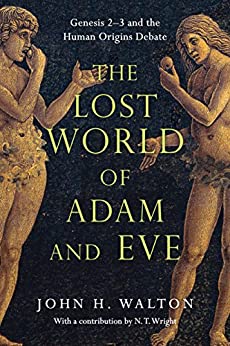
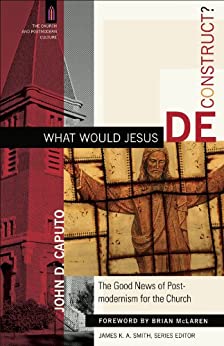
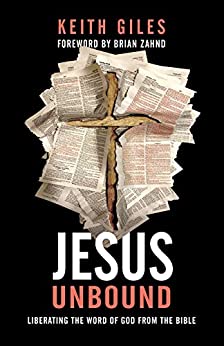
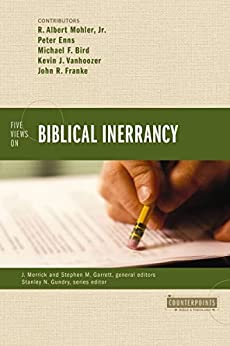
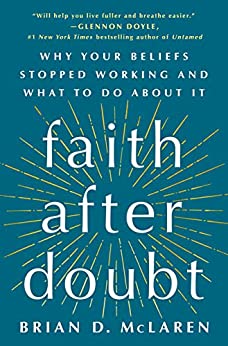
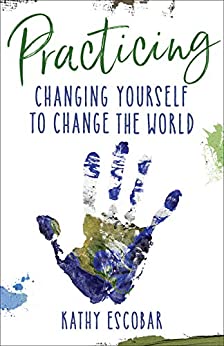
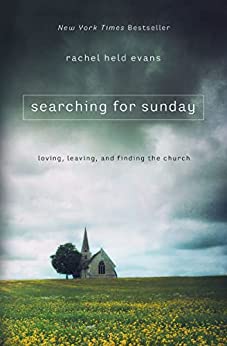
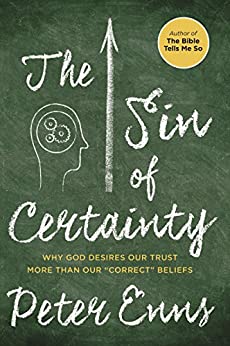
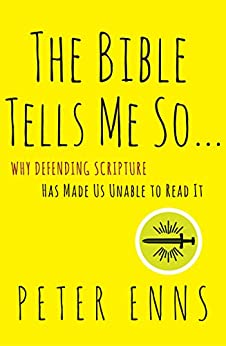
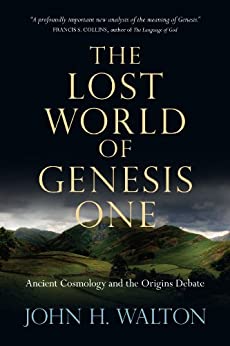
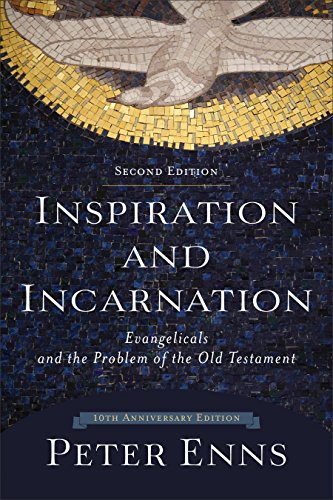
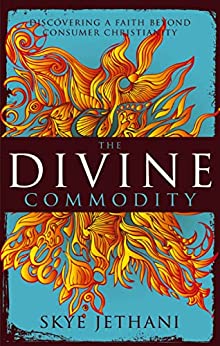
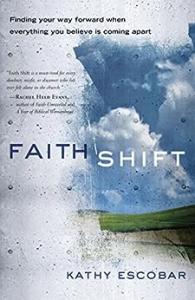
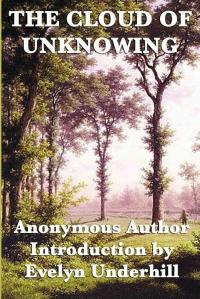
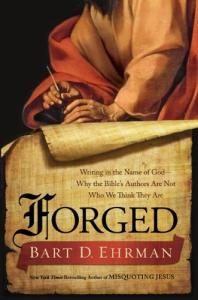
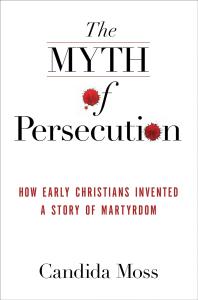
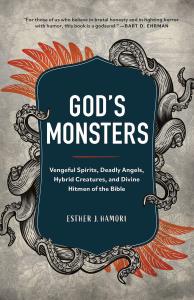
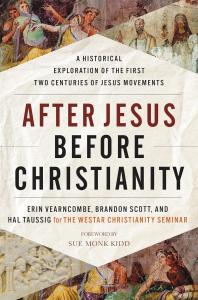
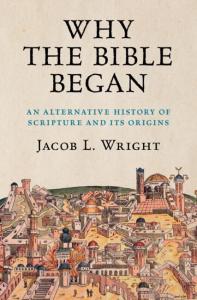
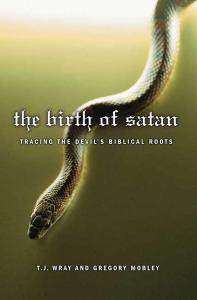
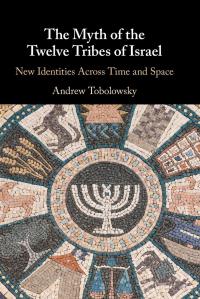
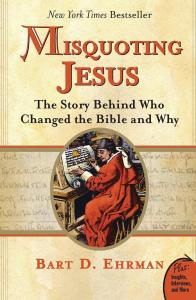
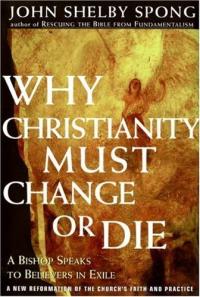
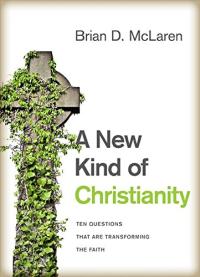
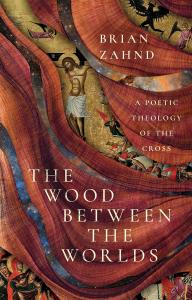
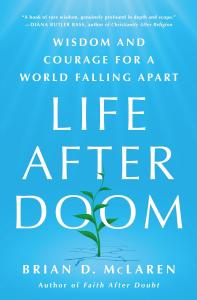
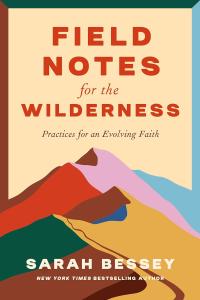
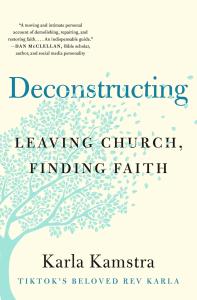
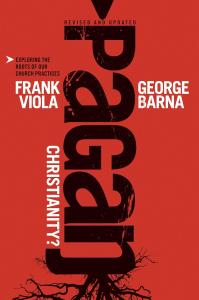
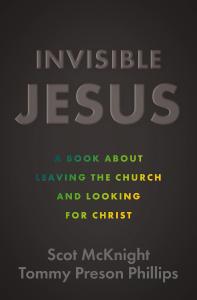
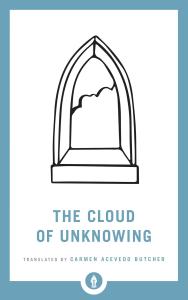



Reviews
“Falling Upward: A Spirituality for the Two Halves of Life” by Richard Rohr


This is the second book that I’ve read that was written by Franciscan priest Richard Rohr, founder of the Center for Action and Contemplation in Albuquerque, New Mexico. Let’s start by saying: the man thinks on an entirely different plane than most of us. And I think that’s the point of his books: setting forth some ideas about why he thinks so differently – especially than most Christians.
With that background, this book made a lot more sense to me than the other one (The Universal Christ), but I actually suspect that’s because I read it somewhat further along in my spiritual journey of the last couple years. I think I’m coming around to Rohr’s general way of looking at the world, even without his writing, so when I read this book, a lot of it clicked. I see a lot of crossover with the book Faith After Doubt by Brian McLaren, which actually references this book a few times. McLaren is using a four-stage rubric, while Rohr uses two (first half and second half of our spiritual life), but they’re both poking at the same thing: the idea that everyone who matures over the span of their spiritual life progresses using a relatively predictable and common pathway. Some people never progress or mature: they’re stuck at stage 1 or first half Christianity.
The thing about Rohr that is the hardest for me to grapple with, because of my evangelical Christian roots, is the idea that all the world religions follow this same general path, and the mature faithful of each religion naturally arrive at a "higher" form of spirituality than we see portrayed by the passionate, aggressive, and sometimes violent youthful energy of its immature apologists. So the eventual mature results, according to Rohr, are extremely similar no matter what religion to which you might adhere. And for that reason, there’s a lot of commonality and room for cooperation between the elders of those religions, contrary to what the passionate and boundary-maintaining youth tend to believe. This, of course, offends my evangelical hind-brain, but tugs appealingly at my rapidly-maturing higher consciousness. I’m not fully there yet, but I can see the value in what he’s proposing, even if I can’t quite get on board yet.
At any rate, I find that I need to read more of Rohr’s works, because they’re challenging in an extremely good way, and fill me with hope for myself and for mankind and its relationship with God, even if Rohr’s deeper ideas deeply offend some of my old evangelical upbringing.”
(Reviewed July 2023)
Amazon description: In Falling Upward, Fr. Richard Rohr seeks to help readers understand the tasks of the two halves of life and to show them that those who have fallen, failed, or "gone down" are the only ones who understand "up." Most of us tend to think of the second half of life as largely about getting old, dealing with health issues, and letting go of life, but the whole thesis of this book is exactly the opposite. What looks like falling down can largely be experienced as "falling upward." In fact, it is not a loss but somehow actually a gain, as we have all seen with elders who have come to their fullness. This important book explores the counterintuitive message that we grow spiritually much more by doing wrong than by doing right–a fresh way of thinking about spirituality that grows throughout life.
“Curveball: When Your Faith Takes Turns You Never Saw Coming (or How I Stumbled and Tripped My Way to Finding a Bigger God)” by Peter Enns


Peter Enns has a very conversational, self-deprecating, easygoing writing style – even when addressing very deep, challenging topics. This book is no exception. He tackles the harder aspects of faith – dealing with the unexpected things with which God confronts us – with a simple storytelling approach, sharing his own journey of faith, including some of its real twists and turns and stumbles.
I could deeply relate to his experience, in many ways, although he’s been in the change cycle a lot longer than me. So in a lot of ways, this book gave me a lot of language for things I’ve been sensing and feeling for a while. I appreciate his discussion of science topics, as he was touching on areas I’ve found fascinating for a long time, and could easily relate to as he used them to illustrate some useful things about God and the universe and our relationship to it.
In short: highly recommended.”
(Reviewed July 2023)
Amazon description: The author of How the Bible Actually Works and The Bible Tells Me So explains how our model of God and faith must evolve as our understanding of the world deepens—just as the Bible describes it should.
Life throws us "curve balls"—from devastating personal losses to world tragedies. These events often leave us doubting God, the Bible, and our faith. But instead of pushing away our reservations, we should embrace them, Peter Enns argues. A leading biblical scholar and Christian mentor, Enns has never been afraid to question the Bible or Christian beliefs. Such thoughtful inquisitiveness, he argues, is part of God’s plan. He wants us to question, because doing so actually leads to a stronger, lasting faith.
By reframing how we see these events, we allow ourselves to see how the Bible itself showcases this very process and that "treating curve balls as the enemy" is not only counterproductive but thwarts God’s goal of helping us become mature and wise. Enns shares a number of curve balls he’s encountered in his own life and the questions he has pondered. Does God care about the millions of people who never heard the gospel? Could I relate to a God who has created a universe this big? If God is so relatable, constant, and caring, how do we explain quantum physics? He reveals how particular biblical passages have helped him find wisdom, and how they can do the same for us.
As Curveball persuasively shows, God is bigger and more mysterious than anyone’s expectations. We need a faith that can grow just as deeply.
“Do I Stay Christian?: A Guide for the Doubters, the Disappointed, and the Disillusioned” by Brian D. McLaren


I found this book to be useful in framing some questions I’ve had about my own faith. The last couple years have had me asking a lot of questions about Christianity, and seeing a lot of its flaws, and seeing how people who claim the label “Christian” are not acting much like the Christ they claim to represent. So this book was well-timed for my own journey.
I appreciate McLaren’s approach: give reasons to stay, AND reasons to go, basically considering the question fairly, rather than sermonizing about what the right answer should be.
Given my own bent towards universal reconciliation – the idea that God will eventually win and save all hearts and souls, even after human death, in the afterlife – I have no real concern that someone who walks away from Christianity is lost forever. And I personally find that a lot of the activity in churches today isn’t real Christianity, and thus those who walk away from it are not walking away from God, but away from a very flawed and often dangerously harmful presentation that doesn’t really resemble Christ anyway.
As such, I have no problem with McLaren’s “yes, there may well be good reasons you should walk away” answer. Just as I have essentially chosen that I cannot be identified with the unBiblical use of the term “Christian,” and yet am not walking away from God or Christ, I cannot fault anyone else making the same choice. But at the same time (thanks to the book “Faith After Doubt”) I see that everyone is on a journey, and some may happily live their entire life in the midst of the American “Christian” ideal which I have decided is deeply flawed, and for them to choose to stay does not bother me either. We are each responsible for the understanding that God has given us individually, and I rejoice in anyone doing so faithfully, no matter what label they accept or reject.
(Reviewed August 2023)
Amazon description: “Do I Stay Christian?” addresses in public the powerful question that surprising numbers of people – including pastors, priests, and other religious leaders – are asking in private. Picking up where Faith After Doubt leaves off, “Do I Stay Christian?” is not McLaren’s attempt to persuade Christians to dig in their heels or run for the exit. Instead, he combines his own experience with that of thousands of people who have confided in him over the years to help readers make a responsible, honest, ethical decision about their religious identity.
There is a way to say both yes and no to the question of staying Christian, McLaren says, by shifting the focus from whether we stay Christian to how we stay human. If Do I Stay Christian? is the question you’re asking – or if it’s a question that someone you love is asking – this is the book you’ve been waiting for.
“Leaving Church: A Memoir of Faith” by Barbara Brown Taylor


Another highly-recommended book.
This may be scary or off-putting for some people, but here’s the thing that this book (and her other book “Holy Envy”) taught me: other world religions are not as fundamentally different as I had been taught, and there’s a lot to learn from them, and there’s a lot of room at the global table for cooperation instead of real or spiritual warfare between religions.
I read this immediately after “Holy Envy,” because I was interested in understanding more about Taylor’s journey, and what it cost her, and what she gained from it. Having recently left my own faith home of over 30 years, I can identify with a lot of what she shared, and this book helped me rest in my own process.
If you read this, please also read “Holy Envy.”
(Reviewed August 2023)
Amazon description: Barbara Brown Taylor, once hailed as one of America’s most effective and beloved preachers, eloquently tells the moving and delightful story of her search to find an authentic way of being Christian – even when it meant giving up her pulpit.
“The Bible Made Impossible: Why Biblicism Is Not a Truly Evangelical Reading of Scripture” by Christian Smith


I loved this book and would recommend it to anyone who’s trying to understand the literalist, inerrantist people in their lives. Smith does a great job of showing how Biblicism is effectively impossible on its own terms. But in doing so, he’s not trying to destroy the authority of the Bible; I’d suggest that he does the opposite, and shows how strongly useful the Bible can be when we read it on its own terms instead of trying to cram it into our own particular doctrines.”
(Reviewed April 2023)
Amazon description: Biblicism, an approach to the Bible common among some American evangelicals, emphasizes together the Bible’s exclusive authority, infallibility, clarity, self-sufficiency, internal consistency, self-evident meaning, and universal applicability. Acclaimed sociologist Christian Smith argues that this approach is misguided and unable to live up to its own claims. If evangelical biblicism worked as its proponents say it should, there would not be the vast variety of interpretive differences that biblicists themselves reach when they actually read and interpret the Bible. Far from challenging the inspiration and authority of Scripture, Smith critiques a particular rendering of it, encouraging evangelicals to seek a more responsible, coherent, and defensible approach to biblical authority. This important book has generated lively discussion and debate. The paperback edition adds a new chapter responding to the conversation that the cloth edition has sparked.
“The Evolution of Adam, What the Bible Does and Doesn’t Say about Human Origins” by Peter Enns


Like Jared Byas, Pete Enns is definitely not afraid to poke at Christian tropes. Along with the two "Lost World" books, I picked this one up because I wanted a Biblical historian’s view of the story of Adam and Eve. Like those books, he does a good job of showing how we don’t have to pick between faith versus science or history.
(Reviewed January 2023)
Amazon description: Can Christianity and evolution coexist? Traditional Christian teaching presents Jesus as reversing the effects of the Fall of Adam. However, an evolutionary view of beginnings doesn’t allow for a historical Adam, making evolution seemingly incompatible with what Genesis and the apostle Paul say about him. For Christians who accept evolution and want to take the Bible seriously, this presents a faith-shaking tension. Peter Enns, an expert in biblical interpretation, offers a way forward by explaining how this tension is caused not by the discoveries of science but by false expectations about the biblical texts. Focusing on key biblical passages in the discussion, Enns demonstrates that the author of Genesis and the apostle Paul wrote to ask and answer ancient questions for ancient people; the fact that they both speak of Adam does not determine whether Christians can accept evolution. This thought-provoking book helps readers reconcile the teachings of the Bible with the widely held evolutionary view of beginnings and will appeal to anyone interested in the Christianity-evolution debate.
“Jonah for Normal People: A Guide to the Most Misunderstood Prophet of the Bible (The Bible for Normal People)” by Jared Byas


Jarad Byas, and his co-host Pete Enns on the podcast "The Bible for Normal People," are unafraid to tackle just about any third-rail issue, and they seem to take pleasure in breaking down long-standing Christian ideas about the biggest miraculous stories in the Bible. If you can go into this book with an open mind, it’s a rather fun romp through a fairly short book of the Bible.
(Reviewed January 2023)
Amazon description: Jonah’s encounter with a big fish is one of the most widely recognised—and misunderstood—stories in the Bible. In this highly accessible guide to the book of Jonah, Jared Byas invites modern-day readers to explore the context behind the story, and consider the questions Jonah’s early audience faced: questions about the relationship between justice and mercy, what it means to be a worshipper of Yahweh (and who gets to be one), and what happens when God doesn’t act how we would like. Through explorations of genre, language, history, themes and theology, Byas skilfully guides us on a journey with Jonah into the depths of the unknown . . . and finds many of these questions are still relevant today.
“The Lost World of Adam and Eve: Genesis 2-3 and the Human Origins Debate (The Lost World Series Book 1)” by John H. Walton


This series is fun.¶As with some other books I’ve read, I love the way this one unflinchingly tackles the supposed historical content of the first book of the Bible, and gives some excellent cultural perspective. I’ve always been an “old earth creationist,” fully believing in creation but not that it happened in just one calendar week. This book takes things even further than I had ever thought, exploring questions about the historicity of the “first couple.” Overall, I thought that the best thing about this book (and its companion book discussed above) is showing how one does not need to consider the Bible and science or history to be at odds with each other.
(Reviewed February 2023)
Amazon description: For centuries the story of Adam and Eve has resonated richly through the corridors of art, literature and theology. But for most moderns, taking it at face value is incongruous. And even for many thinking Christians today who want to take seriously the authority of Scripture, insisting on a “literal” understanding of Genesis 2-3 looks painfully like a “tear here” strip between faith and science. How can Christians of good faith move forward? Who were the historical Adam and Eve? What if we’ve been reading Genesis – and its claims regarding material origins – wrong? In what cultural context was this couple, this garden, this tree, this serpent portrayed? Following his groundbreaking Lost World of Genesis One, John Walton explores the ancient Near Eastern context of Genesis 2—3, creating space for a faithful reading of Scripture along with full engagement with science for a new way forward in the human origins debate. As a bonus, an illuminating excursus by N. T. Wright places Adam in the implied narrative of Paul’s theology. The Lost World of Adam and Eve will be required reading for anyone seeking to understand this foundational text historically and theologically, and wondering how to view it alongside contemporary understandings of human origins.
“What Would Jesus Deconstruct? (The Church and Postmodern Culture): The Good News of Postmodernism for the Church” by John D. Caputo


I agree with the Amazon review: this book is provocative. He probably goes further than I’m willing to go at this time in approaching deconstruction, but I liked the way he took the church to task for quite a few things that we really should have surrendered ages ago.
(Reviewed February 2023)
Amazon description: This provocative addition to The Church and Postmodern Culture series offers a lively rereading of Charles Sheldon’s In His Steps as a constructive way forward. John D. Caputo introduces the notion of why the church needs deconstruction, positively defines deconstruction’s role in renewal, deconstructs idols of the church, and imagines the future of the church in addressing the practical implications of this for the church’s life through liturgy, worship, preaching, and teaching. Students of philosophy, theology, religion, and ministry, as well as others interested in engaging postmodernism and the emerging church phenomenon, will welcome this provocative, non-technical work.
“Jesus Unbound: Liberating the Word of God from the Bible” by Keith Giles


This book presents a good sense of the difference between "the Word of God," as in Jesus the Living Word, and the word of God, the written Bible. It shows how we can fully love God without worshiping the written word, which seems to be a very common problem in this age. As people "deconstruct" and wonder about an infallible or inerrant Bible, it’s too common to be told that if we doubt the perfection of the Bible then we won’t have anything to which we can cling, and we might lose our salvation. This book does a great job of decoupling Jesus from the book about Him.
(Reviewed February 2023)
Amazon description: What if the Bible actually keeps us from hearing the Word of God? For many Christians, the Bible is the only way to know anything about God. But according to that same Bible, everyone can know God directly through an actual relationship with Jesus. Jesus Unbound is an urgent call for the followers of Jesus to know Him intimately because the Gospel is not mere information about God, but a transformational experience with a Christ who is closer to us than our own heartbeat.
“Five Views on Biblical Inerrancy (Counterpoints: Bible and Theology)” by J. Merrick, Stephen M. Garrett, and Stanley N. Gundry


This proved to be an incredibly useful book. As with others in this series, it basically lays out multiple viewpoints, one at a time, by multiple authors. Each author presents their view, then the other contributing authors respond to (or rebut) that author. So each case includes both perspectives. It’s a great way to get a comprehensive sense of the various viewpoints, and both pro- and con- responses to those viewpoints. I personally found Pete Enns’ views to be the most compelling, and I was the most bothered by Al Mohler’s take on it. He basically conflates evangelicalism with Christianity, and in fact begins by calling it “the evangelical faith.”
(Reviewed March 2023)
Amazon description: The inerrancy of the Bible–the belief that the Bible is without error–is often a contentious topic among mainstream Christianity. Like other titles in the Counterpoints collection, this volume gives those interested in theology the tools they need to draw informed conclusions on debated issues by showcasing the range of positions in a way that helps readers understand the perspectives–especially where and why they diverge. Each essay in Five Views on Biblical Inerrancy considers the present context, viability, and relevance for the contemporary evangelical Christian witness; whether and to what extent Scripture teaches its own inerrancy; the position’s assumed or implied understandings of the nature of Scripture, God, and truth; and three difficult biblical texts: one that concerns intra-canonical contradictions, one that raises questions of theological plurality, and one that concerns historical authenticity. Five Views on Biblical Inerrancy serves not only as a single-volume resource for surveying the current debate, but also as a catalyst both for understanding and advancing the conversation further. Contributors include Al Mohler, Kevin Vanhoozer, Michael Bird, Peter Enns, and John Franke.
“Faith After Doubt: Why Your Beliefs Stopped Working and What to Do About It” by Brian D. McLaren


This was a super-hard book for me to read, because it challenged a number of my core assumptions about Christianity. With that said, it was so compelling that I picked it for a book study topic after only about half of the book. I very quickly identified with the stages that he describes, and my own journey through those stages. I’ve still got a long way to go, but this gave me hope that what I’ve experienced in the last few years is very normal and there is hope ahead.
(Reviewed October 2022)
Amazon description: Sixty-five million adults in the U.S. have dropped out of active church attendance and about 2.7 million more are leaving every year. Faith After Doubt is for the millions of people around the world who feel that their faith is falling apart.
Using his own story and the stories of a diverse group of struggling believers, Brian D. McLaren, a former pastor and now an author, speaker, and activist shows how old assumptions are being challenged in nearly every area of human life, not just theology and spirituality. He proposes a four-stage model of faith development in which questions and doubt are not the enemy of faith, but rather a portal to a more mature and fruitful kind of faith. The four stages—Simplicity, Complexity, Perplexity, and Harmony—offer a path forward that can help sincere and thoughtful people leave behind unnecessary baggage and intensify their commitment to what matters most.
“Practicing: Changing Yourself to Change the World” by Kathy Escobar


I’m still working on reading this book.
(Reviewed November 2022)
Amazon description: From the masses of young people spurning organized religion to faithful followers of Jesus, there is a deep hunger across gender, age, socioeconomics, and denominational backgrounds for practical, tangible ways to live a life of love, mercy, and justice in our divided, fragmented world. But where do we start? Its easy to feel overwhelmed by the worlds problems, with solutions to violence and poverty and oppression seeming so far out of reach.
But you have more power to change the world than you realize, and it starts with changing yourself.
In Practicing, Pastor Kathy Escobar inspires and challenges readers with practical encouragement to live their faith through real action using ten transformational practices, including listening more, including the marginalized, advocating for justice, and mourning with those who grieve. By putting our hearts, hands, and feet behind our good intentions, we can transform our groups, our communities, and our world. Extremely interactive, relational, and practical, Practicing can be read alone or processed together with a group, church, or class.
“Searching for Sunday: Loving, Leaving, and Finding the Church” by Rachel Held Evans


This was a compelling book in a very readable, approachable, and friendly tone. But it tackles some hard issues with evangelicalism. It’s written from a very liturgical view, which made it a little alien to me. But this didn’t detract from the book, and in fact made it a bit more compelling in some ways. Absolutely worth the time to read.
(Reviewed November 2022)
Amazon description: From New York Times bestselling author Rachel Held Evans comes a book that is both a heartfelt ode to the past and hopeful gaze into the future of what it means to be a part of the Church.
Like millions of her millennial peers, Rachel Held Evans didn’t want to go to church anymore. The hypocrisy, the politics, the gargantuan building budgets, the scandals–church culture seemed so far removed from Jesus. Yet, despite her cynicism and misgivings, something kept drawing her back to Church. And so she set out on a journey to understand Church and to find her place in it.
Centered around seven sacraments, Evans’ quest takes readers through a liturgical year with stories about baptism, communion, confirmation, confession, marriage, vocation, and death that are funny, heartbreaking, and sharply honest.
A memoir about making do and taking risks, about the messiness of community and the power of grace, Searching for Sunday is about overcoming cynicism to find hope and, somewhere in between, Church.
“The Sin of Certainty: Why God Desires Our Trust More Than Our Correct” Beliefs”” by Peter Enns


Yes yes yes yes yes! Pete Enns is not going to make many hard-core evangelicals happy with this book (or really, with anything he writes) but he’s identified something that I have been talking and blogging about for a while: the idea that faith isn’t hanging on for dear life to our existing beliefs; instead it’s about the wrestling match with God, coming to grips with things that He drops in front of us to challenge and mature us.
(Reviewed November 2022)
Amazon description: The controversial evangelical Bible scholar and author of The Bible Tells Me So explains how Christians mistake "certainty" and "correct belief" for faith when what God really desires is trust and intimacy.
With compelling and often humorous stories from his own life, Bible scholar Peter Enns offers a fresh look at how Christian life truly works, answering questions that cannot be addressed by the idealized traditional doctrine of "once for all delivered to the saints."
Enns offers a model of vibrant faith that views skepticism not as a loss of belief, but as an opportunity to deepen religious conviction with courage and confidence. This is not just an intellectual conviction, he contends, but a more profound kind of knowing that only true faith can provide.
Combining Enns’ reflections of his own spiritual journey with an examination of Scripture, The Sin of Certainty models an acceptance of mystery and paradox that all believers can follow and why God prefers this path because it is only this way by which we can become mature disciples who truly trust God. It gives Christians who have known only the demand for certainty permission to view faith on their own flawed, uncertain, yet heartfelt, terms.
“The Bible Tells Me So: Why Defending Scripture Has Made Us Unable to Read It” by Peter Enns


If you’ve been wrestling with the concept of inerrancy, and find it a little too unbelievable, or if you just want to understand what all your non-conservative Christian friends are saying about mistakes in the Bible, this is a good book to read. Pete Enns tackles the subject in a casual manner, telling his story while explaining concepts of the creation and recording of Scripture from the perspective of Bible historians. By the end of the book, I was appreciating the genius of God’s word in an entirely new way. It surprised me that not requiring an absolutely inerrant scripture could help me appreciate it even more.
(Reviewed November 2022)
Amazon description: The controversial Bible scholar and author of The Evolution of Adam recounts his transformative spiritual journey in which he discovered a new, more honest way to love and appreciate God’s Word.
Trained as an evangelical Bible scholar, Peter Enns loved the Scriptures and shared his devotion, teaching at Westminster Theological Seminary. But the further he studied the Bible, the more he found himself confronted by questions that could neither be answered within the rigid framework of his religious instruction or accepted among the conservative evangelical community.
Rejecting the increasingly complicated intellectual games used by conservative Christians to "protect" the Bible, Enns was conflicted. Is this what God really requires? How could God’s plan for divine inspiration mean ignoring what is really written in the Bible? These questions eventually cost Enns his job—but they also opened a new spiritual path for him to follow.
The Bible Tells Me So chronicles Enns’s spiritual odyssey, how he came to see beyond restrictive doctrine and learned to embrace God’s Word as it is actually written. As he explores questions progressive evangelical readers of Scripture commonly face yet fear voicing, Enns reveals that they are the very questions that God wants us to consider—the essence of our spiritual study.
“The Lost World of Genesis One: Ancient Cosmology and the Origins Debate” by John H. Walton


This was a neat book to read. I grew up with a father who was always (as long as I remember) an "old-earth creationist" – one who didn’t believe in a literal six-day creation, but still believed in God as creator. This book tackles the issues of the science of cosmology and the origin of the earth, balanced against what the Bible says, and considers a framework for understanding how we can be fully convinced of the accuracy of scripture AND the accuracy of scientific understandings all at the same time.
(Reviewed November 2022)
Amazon description: In this astute mix of cultural critique and biblical studies, John H. Walton presents and defends twenty propositions supporting a literary and theological understanding of Genesis 1 within the context of the ancient Near Eastern world and unpacks its implications for our modern scientific understanding of origins. Ideal for students, professors, pastors and lay readers with an interest in the intelligent design controversy and creation-evolution debates, Walton’s thoughtful analysis unpacks seldom appreciated aspects of the biblical text and sets Bible-believing scientists free to investigate the question of origins.
“Inspiration and Incarnation: Evangelicals and the Problem of the Old Testament” by Pete Enns


I loved Pete Enns’ concept of the incarnation of Scripture. I’ve been wrestling for a while with the idea of fallibility of the Bible, how it really does contain errors or inconsistencies, yet can be fully God’s word. This book framed the problem in a way that really freed me to relax about the matter and see God’s amazing design even within what looked like a problem to be solved.
(Reviewed November 2022)
Amazon description: How can an evangelical view of Scripture be reconciled with modern biblical scholarship? In this book Peter Enns, an expert in biblical interpretation, addresses Old Testament phenomena that challenge traditional evangelical perspectives on Scripture. He then suggests a way forward, proposing an incarnational model of biblical inspiration that takes seriously both the divine and the human aspects of Scripture. This tenth anniversary edition has an updated bibliography and includes a substantive postscript that reflects on the reception of the first edition.
“The Divine Commodity: Discovering a Faith Beyond Consumer Christianity” by Skye Jethani


In the course of telling the story, Skye returns each chapter to the life and biography of Vincent van Gogh. By the time the book ended, I felt like I had rediscovered the famous painter and I really look forward to the next time I can view his paintings in person.
(Reviewed November 2022)
Amazon description: The challenge facing Christianity today is not a lack of motivation or resources, but a failure of imagination.A growing number of people are disturbed by the values exhibited by the contemporary church. Worship has become entertainment, the church has become a shopping mall, and God has become a consumable product. Many sense that something is wrong, but they cannot imagine an alternative way. The Divine Commodity finally articulates what so many have been feeling and offers hope for the future of a post-consumer Christianity.
Through Scripture, history, engaging narrative, and the inspiring art of Vincent van Gogh, The Divine Commodity explores spiritual practices that liberate our imaginations to live as Christ’s people in a consumer culture opposed to the values of his kingdom. Each chapter shows how our formation as consumers has distorted an element of our faith. For example, the way churches have become corporations and how branding makes us more focused on image than reality. It then energizes an alternative vision for those seeking a more meaningful faith. Before we can hope to live differently, we must have our minds released from consumerism’s grip and captivated once again by Christ.
“Faith Shift: Finding Your Way Forward When Everything You Believe Is Coming Apart” by Kathy Escobar


I’ve only read the sample chapter so far. But it’s caught my attention, and I intend to finish the entire book soon.
(Reviewed July 2023)
Amazon description: Hope for spiritual refugees, church burnouts, and freedom seekers.
After years of participating in a comfortable faith tradition, many find themselves in a spiritual wilderness, feeling disillusioned with church, longing for more freedom and less religion in their lives. If that describes you, you’re in good company. Countless men and women are in the middle of a shifting faith – and aren’t sure where to turn.
But losing beliefs doesn’t mean you have to lose your faith. Pastor, friend, and spiritual director Kathy Escobar has journeyed with many who have experienced significant shifts in the faith they once considered unchangeable. Through their stories and her own, Kathy has discovered that growth and change are natural parts of life in our relationship with God.
Filled with honest stories and practical insights, Faith Shift gives language to what many experience as their faith evolves. With an inviting blend of vulnerability and hope, it addresses the losses that come with spiritual shifts and offers tangible practices for rebuilding a free and authentic faith after it unravels.
Includes personal reflection and group discussion questions at the end of each chapter.
“The Cloud of Unknowning” by Anonymous


This is a placeholder – I haven’t read this book yet, but wanted a stub for it on my reviews page. The quotes I’ve seen so far are quite compelling.
Because the book is anonymous, there are no copyrights on the content, and so any version you buy on Amazon is not paying the author (who was from the 1300s or so anyway). I’m sure there are free versions out there, but I found it convenient to buy this inexpensive version (just $1) for my Kindle.
Here are a few links to free copies:
https://www.catholicspiritualdirection.org/cloudunknowing.pdf
https://ia802909.us.archive.org/32/items/cloudofunknowing0000unse_h8l5/cloudofunknowing0000unse_h8l5.pdf
https://fliphtml5.com/tduu/bugt/basic
(Reviewed October 2023)
Amazon description: At a time when the whole of Western Europe was in the grip of the Black Death and the Hundred Years War, there was a great flourishing of spiritual works. The Cloud of Unknowing is part of this tradition, and although the exact identity of its author remains obscure, he was probably an English country patron of the late fourteenth century. The main theme of this book is that God cannot be reached by human intellect but only by a love that can pierce the ‘cloud of unknowing.’
“Forged: Writing in the Name of God – Why the Bible’s Authors Are Not Who We Think They Are” by Bart D. Ehrman


Until this last month or so, I’d never given any thought to the actual authorship of the Bible’s books. I simply believed if the title of the book had a name, that’s who wrote it. If my church said “Paul wrote this,” that settled it.
It’s pretty clear to me now that such beliefs fly in the face of quite a bit of well-accepted data.
Even some conservatives, for example, readily admit that we really don’t know who wrote some of the books that are traditionally attributed (like, Acts to Luke, or Hebrews to Paul). But I’d always shied away from thinking deeply about that problem. I simply didn’t want to know.
But Ehrman does a great job of explaining not only the best scholarly consensus about a number of books, but far more importantly, why it matters that these simply attributions or claims of authorship might not be – or likely are not – factual.
Do what you want with the knowledge – believe it doesn’t matter if you wish. But I think one core aspect of Christian values is pursuit of the truth, even if it’s painful. And admitting and accepting the best information available about the Bible’s authorship seems pretty critical to me in pursuit of that truth, even if the consequences might rock my doctrinal roots.
(Reviewed November 2023)
Amazon description: Bart D. Ehrman, the New York Times bestselling author of Jesus, Interrupted and God’s Problem reveals which books in the Bible’s New Testament were not passed down by Jesus’s disciples, but were instead forged by other hands – and why this centuries-hidden scandal is far more significant than many scholars are willing to admit. A controversial work of historical reporting in the tradition of Elaine Pagels, Marcus Borg, and John Dominic Crossan, Ehrman’s Forged delivers a stunning explication of one of the most substantial – yet least discussed – problems confronting the world of biblical scholarship.
“The Myth of Persecution: How Early Christians Invented a Story of Martyrdom” by Candida Moss


This book covers a wide range of stories of martyrs, but more importantly, of those Christians throughout history who have written about them. The author’s point of these stories is to show how the idea of martyrdom has changed over the centuries, becoming increasingly glorified, and at the same time (for that reason) moving further away from the truth, which the author asserts is this: that martyrdom due to raw persecution was actually fairly rare, and many of the early martyrs actually sought out reasons to be killed for their faith, to be like Jesus Himself. It’s a pretty thorough treatment, and the case is compelling: Christianity loves to see itself as under constant attack, and martyrdom stories of Christian believers is a powerful rhetorical tool to fortify the church and set strong boundaries on orthodoxy.
For some time now, I have been personally convinced that the American church uses its relationship to the world in a dangerous and often deceptive way, creating in its members a constant state of fear and isolationism. I find that this goes against the larger purposes of scripture, and ought not to be how Christians live. This book solidified a factual basis for this gut-level understanding, and I found it to be a valuable book.
(Reviewed December 2023)
Amazon description: In The Myth of Persecution, Candida Moss, a leading expert on early Christianity, reveals how the early church exaggerated, invented, and forged stories of Christian martyrs and how the dangerous legacy of a martyrdom complex is employed today to silence dissent and galvanize a new generation of culture warriors.
According to cherished church tradition and popular belief, before the Emperor Constantine made Christianity legal in the fourth century, early Christians were systematically persecuted by a brutal Roman Empire intent on their destruction. As the story goes, vast numbers of believers were thrown to the lions, tortured, or burned alive because they refused to renounce Christ. These saints, Christianity’s inspirational heroes, are still venerated today.
Moss, however, exposes that the “Age of Martyrs” is a fiction – there was no sustained 300-year-long effort by the Romans to persecute Christians. Instead, these stories were pious exaggerations; highly stylized rewritings of Jewish, Greek, and Roman noble death traditions; and even forgeries designed to marginalize heretics, inspire the faithful, and fund churches.
The traditional story of persecution is still taught in Sunday school classes, celebrated in sermons, and employed by church leaders, politicians, and media pundits who insist that Christians were – and always will be – persecuted by a hostile, secular world. While violence against Christians does occur in select parts of the world today, the rhetoric of persecution is both misleading and rooted in an inaccurate history of the early church. Moss urges modern Christians to abandon the conspiratorial assumption that the world is out to get Christians and, rather, embrace the consolation, moral instruction, and spiritual guidance that these martyrdom stories provide.
“God’s Monsters: Vengeful Spirits, Deadly Angels, Hybrid Creatures, and Divine Hitmen of the Bible” by Esther J. Hamori


This was a jarring and disturbing book.
I have chosen to cultivate a view of God as loving and eternally patient, because I do believe (despite this book) that it’s the best view of God when we look at the entirety of Scripture. But this book certainly complicates that understanding I have nurtured.
My sense, as Hamori discusses in the very last chapter, is that the Bible is a very diverse collection of writings and stories from people wrestling with the realities of their world and their interactions with the supernatural. That doesn’t mean they got it all right – but I do generally think they were honest in documenting how they felt and thought.
One thing that Hamori doesn’t do – and I find this unfortunately true of some other books of similar genre – is to account for the difference between the reality and the way that flawed humans perceive the reality in their context. So when Hebrew Bible writers describe these monsters, that doesn’t mean that those monsters are exactly as described. The descriptions are a compilation of myth, fear, other regional cultures, and much more. I’ve had some pretty scary dreams in my time, but wouldn’t trust that those dreams always represent reality.
But with that said, I agree with Hamori’s underlying conclusion: the Bible is messy, and the God it describes isn’t portrayed quite the picture-perfect way most Christians would like to believe. God does and says some things in that Bible that are quite shocking to our modern sensibilities. And that disparity certainly bears wrestling with, lest we sugarcoat our understanding and miss some important aspects of our faith.
(Reviewed January 2024)
Amazon description: The Bible is teeming with monsters. Giants tromp through the land of milk and honey; Leviathan swims through the wine-dark sea. A stunning array of peculiar creatures, mind-altering spirits, and supernatural hitmen fill the biblical heavens, jarring in both their strangeness and their propensity for violence–especially on God’s behalf.
Traditional interpretations of the creatures of the Bible have sanded down their sharp, unsavory edges, transforming them into celestial beings of glory and light–or chubby, happy cherubs. Those cherubs? They’re actually hybrid guardian monsters, more closely associated with the Egyptian sphinx than with flying babies. And the seraphim? Winged serpents sent to mete out God’s vengeance. Demons aren’t at war with angels; they’re a distinct supernatural species used by Satan and by God. The pattern is chilling. Most of these monsters aren’t God’s opponents–they’re God’s entourage.
Killer angels, plague demons, manipulative spirits, creatures with an alarming number of wings (and eyes all over)–these shapeshifters and realm-crossers act with stunning brutality, each reflecting a facet of God’s own monstrosity. Confronting God’s monsters–and the God-monster–may be uncomfortable, but the Bible is richer for their presence. It’s not only richer; the stories of the monsters of the Bible can be as fun, surprising, and interesting as any mythology. For anyone interested in monsters, myths, folklore, demons, and more, God’s Monsters is an entertaining deep dive into the creaturely strangeness of the Bible.
“After Jesus Before Christianity: A Historical Exploration of the First Two Centuries of Jesus Movements” by Vearncombe, Scott, and Taussig


Well, here’s yet another book that challenges a lot of my assumptions about the Bible and my chosen religion.
We modern Christians really have – and really prefer to have – a very simplistic view of how our faith came into existence, and how all our dearly-held doctrines and dogmas were created. We really want simplicity and well-documented progression towards an inevitable perfect conclusion with no lingering questions.
It’s hard to read a book like this that emphasizes – with a ton of data to back it up – that the history of the Bible and Christianity is quite simply a very messy thing. It’s incredibly non-linear. It wasn’t well-defined. It wasn’t even CLOSE to monolithic. And tons of questions will always linger.
For years people told me, regarding our dogmas, that “this is what we’ve always believed.”
Nope. Not remotely correct, unless your time frame of “always” is merely “the last 40 or 50 years.”
I don’t like the implications of books like this on my simplistic religious world view, but I think they’re important to know. Perhaps, if you’re okay with the simple package of beliefs you get on the average American church Sunday morning Bible study and sermon, and you’re happy with believing you have it all right, anything more complex is dangerous to your faith. In that case, avoid this book.
But for me, a book like this gives the Holy Spirit more “trade space” in my brain to nudge me into a truer path, closer to God, able to hear God’s call to repent from immature and harmful beliefs. It’s disconcerting, but I think it’s valuable.
(Reviewed January 2024)
Amazon description: From the creative minds of the scholarly group behind the groundbreaking Jesus Seminar comes this provocative and eye-opening look at the roots of Christianity that offers a thoughtful reconsideration of the first two centuries of the Jesus movement, transforming our understanding of the religion and its early dissemination.
Christianity has endured for more than two millennia and is practiced by billions worldwide today. Yet that longevity has created difficulties for scholars tracing the religion’s roots, distorting much of the historical investigation into the first two centuries of the Jesus movement. But what if Christianity died in the fourth or fifth centuries after it began? How would that change how historians see and understand its first two hundred years?
Considering these questions, three Bible scholars from the Westar Institute summarize the work of the Christianity Seminar and its efforts to offer a new way of thinking about Christianity and its roots. Synthesizing the institute’s most recent scholarship – bringing together the many archaeological and textual discoveries over the last twenty years – they have found:
– There were multiple Jesus movements, not a singular one, before the fourth century
– There was nothing called Christianity until the third century
– There was much more flexibility and diversity within Jesus’s movement before it became centralized in Rome, not only regarding the Bible and religious doctrine, but also understandings of gender, sexuality and morality.
Exciting and revolutionary, After Jesus Before Christianity provides fresh insights into the real history behind how the Jesus movement became Christianity.
“Why the Bible Began: An Alternative History of Scripture and its Origins” by Jacob L. Wright


Let’s start with this: The answer to the titular question is necessarily going to be a speculation. Naturally a good evangelical would answer “because God” followed by some dogmatic reason. Conversely, a progressive – like the author – will begin with “because man.”
I think both answers are fair at some level, and I don’t think Wright shies away from the complexity here. But the overall thesis is that a collection of independent scribes, acting over centuries, had an interest in the future of their own people, and began to collect, refine, edit, and transform hundreds of individual writings and stories into a not-entirely-self-consistent master story of their people. And their overall purpose was to teach themselves how to live in exile of many different kinds.
While it’s a long book, Wright puts a ton of detail into each chapter, and carefully and thoroughly covers every significant story line in the Bible. While I think some of his assertions about what these scribes meant to do are speculative, I find his speculations to be fairly believable.
Note that this book is solely about the Hebrew Bible. Wright does not address the New Testament at all.
Overall, I’m very glad I read this book. A number of the facts and the conclusions that result from those facts are certainly uncomfortable if one insists on an inerrant Bible that sprang directly from the mind of God and faithfully tells a real story of history. And they’re still uncomfortable even if one doesn’t fully believe that dogmatic Christian narrative. But I think they’re necessary to face, and valuable, if for no other reason than to recognize that quite a few people are asking questions these days about such facts, and those of us who insist on holding on to our faith despite such challenges will have something valuable and knowledgeable to offer those who come with questions.
(Reviewed January 2024)
Amazon description: Why did no other ancient society produce something like the Bible? That a tiny, out of the way community could have created a literary corpus so determinative for peoples across the globe seems improbable.
For Jacob Wright, the Bible is not only a testimony of survival, but also an unparalleled achievement in human history. Forged after Babylon’s devastation of Jerusalem, it makes not victory but total humiliation the foundation of a new idea of belonging. Lamenting the destruction of their homeland, scribes who composed the Bible imagined a promise-filled past while reflecting deeply on abject failure. More than just religious scripture, the Bible began as a trailblazing blueprint for a new form of political community. Its response to catastrophe offers a powerful message of hope and restoration that is unique in the Ancient Near Eastern and Greco-Roman worlds.
Wright’s Bible is thus a social, political, and even economic roadmap – one that enabled a small and obscure community located on the periphery of leading civilizations and empires not just to come back from the brink, but ultimately to shape the world’s destiny. The Bible speaks ultimately of being a united yet diverse people, and its pages present a manual of pragmatic survival strategies for communities confronting societal collapse.
“The Birth of Satan: Tracing the Devil’s Biblical Roots” by T. J. Wray


As I’ve been digging into a lot of the theological underpinnings of my religious upbringing, I have realized that a lot of things I just always assumed were absolutely supported in the Bible were not so simple after all. “Satan” was one of those. Realizing that “satan” or “ha-satan” was simply the Hebrew term for “the adversary” opened my eyes to the idea that perhaps this primary Bible character – at least in the stories I grew up with – was more complicated and less cut-and-dried than anyone admitted. This book did a good job of digging thru the Bible references that have been conflated into the modern Christian set of assumptions about the face of all evil.
(Reviewed May 2024)
Amazon description: Of all the demons, monsters, fiends, and ogres to preoccupy the western imagination in literature, art, and film, no figure has been more feared – or misunderstood – than Satan. But how accurate are the popular images of Satan? How – and why – did this rather minor biblical character morph into the very embodiment of evil? T.J. Wray and Gregory Mobley guide readers on a journey to retrace Satan’s biblical roots. Engaging and informative, The Birth of Satan is a must read for anyone who has ever wondered about the origins of the Devil.
“The Myth of the Twelve Tribes of Israel” by Andrew Tobolowsky


This was a rather dense but informative book that I’m glad I took the time to read. I don’t fully agree with the Amazon review, in the sense that I don’t get the idea from the book that he’s arguing that the Hebrew Bible is just one of many efforts. Rather, I think he’s proposing that there are many efforts, that all fundamentally spring from the Hebrew Bible as a starting point.
In the process of his presentation, I think one thing becomes clear to me as a former evangelical who used to be deeply concerned with the perfection and inerrancy of the Christian Bible: it’s unlikely that the Hebrew Bible (and the following New Testament) portrays a fully accurate story of the sons of Jacob (Israel) and their subsequent exploits. I had never noticed before how diverse the various genealogies actually are, and in retrospect, some of the efforts to explain the differences between the various (many many) tribal lists in the Bible do seem quite forced. Once one steps back from insisting on univocal perfection of the Bible texts, a much more natural explanation appears: they are (1) diverse stories (2) written for diverse purposes and groups (3) by diverse people and groups, and as such, they simply don’t all agree. This, of course, leads to the quite natural question: are they true? And if not, why?
The author’s conclusion is of course very forward, presented in the very title of the book: it’s myth. Not in a damaging sense, but simply in the sense of an effort of various groups or authors to create a story about origins, that is quite happy to stretch truth or make up “facts” to make that story compelling. In the end, he observes that the modern state of affairs regarding the identity of Israel – or actually, MANY different Israels – makes the truth of any given account quite irrelevant: a mythical origin story becomes its own truth and the culture that adopts it uses it AS truth whether or not it originally WAS truth. (And this is just as true of American origin stories as any Israel origin story.)
This bothers us moderns, but older cultures had little interest in pure historical accounts. And this book walks through that understanding fairly carefully, before delving into a number of specific examples of various Israels that have appeared as a result.
(Reviewed February 2024)
Amazon description: The Myth of the Twelve Tribes of Israel is the first study to treat the history of claims to an Israelite identity as an ongoing historical phenomenon from biblical times to the present. By treating the Hebrew Bible’s accounts of Israel as one of many efforts to construct an Israelite history, rather than source material for later legends, Andrew Tobolowsky brings a long-term comparative approach to biblical and nonbiblical “Israelite” histories. In the process, he sheds new light on how the structure of the twelve tribes tradition enables the creation of so many different visions of Israel, and generates new questions: How can we explain the enduring power of the myth of the twelve tribes of Israel? How does “becoming Israel” work, why has it proven so popular, and how did it change over time? Finally, what can the changing shape of Israel itself reveal about those who claimed it?
“Misquoting Jesus: The Story Behind Who Changed the Bible and Why” by Bart D. Ehrman


Bart Ehrman is one of those authors I used to be scared to read because I suspected that the data they presented would change my mind. Now I’m sure of that, and yet I’m still very happy I read his books. In retrospect, if the actual data could change my mind, I’m sure I was wrong before, so it’s a good thing I read it.
I’m not a theology student or scholar and I never will be. I have to trust people who actually do spend their careers researching and learning these things to distill them down into something that novices and interested non-scholars can digest. Ehrman does exactly that, and he does it well. And he does it in a gracious manner that doesn’t belittle those who disagree with him.
In this book, Ehrman presents a lot of very specific examples of how the Bible texts were changed over the centuries, sometimes intentionally, sometimes accidentally. He makes a compelling case for each example (and recognizing that there are actually many more thousands of examples), and shows how those changes affect our doctrine and understanding of the Bible and its meaning.
If you are utterly devoted to Biblical inerrancy, this book will deeply challenge you. And in my opinion, it should, because the data he presents is simple facts, but it has significant implications for the manner in which we read and understand the Bible.
(Reviewed February 2024)
Amazon description: When world-class biblical scholar Bart Ehrman first began to study the texts of the Bible in their original languages he was startled to discover the multitude of mistakes and intentional alterations that had been made by earlier translators. In Misquoting Jesus, Ehrman tells the story behind the mistakes and changes that ancient scribes made to the New Testament and shows the great impact they had upon the Bible we use today. He frames his account with personal reflections on how his study of the Greek manuscripts made him abandon his once ultraconservative views of the Bible.
Since the advent of the printing press and the accurate reproduction of texts, most people have assumed that when they read the New Testament they are reading an exact copy of Jesus’s words or Saint Paul’s writings. And yet, for almost fifteen hundred years these manuscripts were hand copied by scribes who were deeply influenced by the cultural, theological, and political disputes of their day. Both mistakes and intentional changes abound in the surviving manuscripts, making the original words difficult to reconstruct. For the first time, Ehrman reveals where and why these changes were made and how scholars go about reconstructing the original words of the New Testament as closely as possible.
Ehrman makes the provocative case that many of our cherished biblical stories and widely held beliefs concerning the divinity of Jesus, the Trinity, and the divine origins of the Bible itself stem from both intentional and accidental alterations by scribes — alterations that dramatically affected all subsequent versions of the Bible.
“Why Christianity Must Change or Die: A Bishop Speaks to Believers In Exile” by John Shelby Spong


This book really shook up a lot of my assumptions about the nature of faith and Christianity. I thought that Richard Rohr was hard to read as a former evangelical. Spong is light years past Rohr. It’s easy to see why he was so controversial. But with that said, I found myself constantly ping-ponging back and forth between “that’s nuts; that’s not Christianity” and “wow, that speaks deeply to my spirit.” Something in me resounds with his concepts and conclusions, even as my mind wanted to scream “heresy!” with nearly every page.
I won’t forget this book, and I think it challenges me to move beyond my need to bow the knee to traditional institutional Christianity, and open my mind and my heart to a deeper connection with the divine.
Whether or not I ever adopt his ideas about nontheistic Christianity, I certainly resonate with his call to welcome my status as a permanent exile.
(Reviewed February 2024)
Amazon description: An important and respected voice for liberal American Christianity for the past twenty years, Bishop John Shelby Spong integrates his often controversial stands on the Bible, Jesus, theism, and morality into an intelligible creed that speaks to today’s thinking Christian. In this compelling and heartfelt book, he sounds a rousing call for a Christianity based on critical thought rather than blind faith, on love rather than judgment, and that focuses on life more than religion.
“A New Kind of Christianity: Ten Questions That Are Transforming the Faith” by Brian D. McLaren


McLaren continues to help me redefine my Christian faith in useful ways. I forgot who wrote this book when I started reading it (I’d ordered it some time ago on my Kindle, and simply jumped in after finishing another book). I kept thinking “This author really thinks in useful ways.” Well, no surprise, because everything else of his that I have read has been exceedingly useful to me as well.
McLaren has a unique way of seeing, isolating, and reframing the hard questions about faith, not shying away from anything, but helping us to see what simply doesn’t work, and what is outdated and superseded. Yes, God is timeless, but our understanding of God has to change and deal with the changing world, and McLaren puts his finger on a number of ways that classical, traditional, conservative Christianity is no longer able to bridge the gap between God and man, in this season on the earth. But God isn’t dead – far from it – we have just allowed our faith to crystalize into something that is dead and unhelpful in dealing with the world.
If you are struggling to find God in Christianity, this book will point you in the right direction.
(Reviewed May 2024)
Amazon description: A New Kind of Christianity is Brian D. McLaren’s much anticipated follow-up to his breakthrough work of the emergent-church movement, A New Kind of Christian. Named by Time magazine as one of America’s top 25 evangelicals, McLaren, along with such contemporaries as N.T. Wright, Jim Wallis, and Rob Bell, is one of the acknowledged leaders of a new generation of Christians who want to update their faith for current times while remaining true to the core message of Jesus. In this controversial and thought-provoking book, McLaren explores the questions that will determine the shape of Christianity for the next 500 years.
“The Wood Between the Worlds: A Poetic Theology of the Cross” by Brian Zahnd


I appreciated this book more than the other I read by Zahnd. Perhaps I’m more accustomed to his style this time. I disagree with some of his theology – he is fairly conservative in many ways, while I am trending more progressive – but that’s mostly the incidental things he says. The points he is intending to make in this book are deeply compelling. I have been thinking a lot lately about nonviolence in several ways – the intersection of power and authority and its abuse, scapegoats, the death penalty, gun rights and gun culture, the doctrine of hell… Zahnd presents a solid and very self-consistent worldview coming from his musings on the cross over many years. I’m glad I took the time to read this book.
(Reviewed May 2024)
Amazon description: The cross is the heart of Scripture.
Everything about the gospel message leads to the cross, and proceeds from the cross. In fact, within the narrative of Scripture, the crucifixion of Jesus is literally the crux of the story – the axis upon which the biblical story turns. But it would be a mistake to think we could sum up the significance of the crucifixion in a tidy sentence or two. That kind of thinking only insulates us from the magnificence of what God has done. In our ongoing quest to make meaning of the cross, we need to recognize that this conversation will never conclude – that there is always something more to be said.
Brian Zahnd reminds us that the meaning of the cross is multifaceted and should touch every aspect of our lives. Just as gazing through the eyepiece of a kaleidoscope reveals a new geometric image with every turn, Zahnd helps us see that there are infinite ways to behold the cross of Christ as the beautiful form that saves the world. The Wood Between the Worlds is an invitation to encounter the cross of Christ anew.
“Life After Doom: Wisdom and Courage for a World Falling Apart” by Brian D. McLaren


This was very much NOT the kind of book I was expecting from Brian McLaren, given his other books I have read, but it was worth reading. He unflinchingly tackles the looming ecological crisis, but more than considering the crisis itself, he addresses our human and and social and political and religious responses to it. But more than just considering how we DO typically respond, he proposes a lot of useful ways that maybe we SHOULD respond.
I’ve never been one to focus on global climate change, but in the last couple years I’ve seen that my former conservative values typical lambasted and ridiculed anyone who did, and now I am beginning to understand how harmful and shortsighted that response is.
(Reviewed July 2024)
Amazon description: For the last quarter-century, author and activist Brian D. McLaren has been writing at the intersection of religious faith and contemporary culture. In Life After Doom, he engages with the catastrophic failure of both our religious and political leaders to address the dominant realities of our time: ecological overshoot, economic injustice, and the increasing likelihood of civilizational collapse. McLaren defines doom as the “un-peaceful, uneasy, unwanted feeling” that “we humans have made a mess of our civilization and our planet, and not enough of us seem to care enough to change deeply enough or quickly enough to save ourselves.”
“Field Notes for the Wilderness: Practices for an Evolving Faith” by Sarah Bessey


I found this to be a generally useful book to summarize some strategies for comprehending and grounding the process of deconstruction/reconstruction and leaving behind our safe and comfortable – but outgrown – institutional church homes.
Of all the concepts in this book, I appreciated the idea of being in the wilderness. I’ve been talking about living as exiles, living in exile, for a while now, but I like the image of wilderness, particularly in context of the mystics of early Christianity to literally moved away from the comfortable towns to pursue their relationship with God unencumbered by traditional social structures.
(Reviewed July 2024)
Amazon description: It’s hard to leave a faith that has raised us. Maybe it’s even harder to stay. But what can feel impossible is living in the tension. Living with a faith that evolves.
Sarah Bessey is an expert at faithfully stumbling forward. As a New York Times bestselling author and co-founder of Evolving Faith, the foremost community for progressive Christians, she has been trusted by thousands of people to pursue a reconstruction of faith centered on compassion, truth, and inclusion. Bessey has found a deeply underserved and underestimated remnant in the wilderness of Christianity who are still devoted to Jesus, deeply rooted in the Gospel, fascinated with Scripture, and committed to reimagining their faith.
Field Notes for the Wilderness guides us through multiple principles to live by for an evolving faith, including
– practicing wonder and curiosity as spiritual disciplines
– mothering ourselves with compassion and empathy
– making space for lament and righteous rage
– finding good spiritual teachers
– discovering what we are for in this life, and moving in that direction
In this groundbreaking and nurturing book, Bessey becomes a shepherd for our curiosity, giving us a table for our questions, tools to cultivate what we crave, and a blessing for what was – even as we leave it behind.
“Deconstructing: Leaving Church, Finding Faith” by Karla Kamstra


For a while, I’ve seen the name and various social media posts of “Rev Karla” and had no context for it. This book was an excellent introduction to Rev Karla and her history and journey. I can identify with a lot of what she describes, and her process of deconstruction. In particular, her acceptance of other faiths and her desire to bring spiritual growth and healing to interfaith cirles is inspiring, and lines up with my current sense of “universal reconciliation” – that God will bring ALL to restoration, not just whoever dies having “been saved” in Jesus’ name. That conviction has forced me to look more lovingly at members of other faiths, and reading about someone who’s been working for that restoration was helpful.
(Reviewed November 2024)
Amazon description: A gentle, wise guide for everyone deconstructing their beliefs and struggling with the role of faith in their life
As a “good Christian,” Karla Kamstra attended church every Sunday, listened to the pastor, and committed to functions and activities. But no amount of participation could shake her growing sense of spiritual unrest. As time went on, she realized that she was doing Christianity on autopilot – going through the motions, but spiritually checked out.
She finally understood that the rules of the church were keeping God inside a too-small box, and it was time to let “Him” out. And so Karla embarked upon her sacred journey of deconstruction: healing her religious trauma and reclaiming her spirituality.
Now, Rev Karla shares her journey in this wise, gentle guide to help anyone struggling with the role of faith in their lives. Readers are called to demolish the oppressive, patriarchal structure upon which their faith has been built, repair what experiences with dysfunctional and destructive religion may have done to them, and restore their hearts and souls. DECONSTRUCTING will lead readers from silent obedience to sacred empowerment, from religious dogma to spiritual freedom, from toxic theology to authentic faith. For anyone chafing against the confines of church doctrine – it’s time to release God from the rules.
“Pagan Christianity?: Exploring the Roots of Our Church Practices” by Frank Viola and George Barna


This book cemented an idea I’ve been nursing for some time: that our modern church practices (what I call “churchianity”) bear little resemblence to the early church. It was a solid review of all the various ways this is true, and more importantly, where the changes came from.
To some extent, I’ve already written off churchianity, institutional Christianity in America, as not the best way to worship God, even though I still attend a local congregational meeting on Sunday mornings.
But the question that nags me, after reading this, is whether it’s necessarily bad if things are pagan-sourced or pagan-derived or just different from what took place in the first few years of the early church. Maybe Christians learned some valuable things – even if they originated outside the church?
I really don’t know. For now, I’m happy knowing the broader historical truth, and choosing not to completely devote myself to slavishly building up “a church” like I did for over 30 years, and instead devoting myself to being the church, joining myself together with other believers, and defocusing from the institution and its practices.
(Reviewed November 2024)
Amazon description: Have you ever wondered why we Christians do what we do for church every Sunday morning? Why do we “dress up” for church? Why does the pastor preach a sermon each week? Why do we have pews, steeples, and choirs? This ground-breaking book, now in affordable softcover, makes an unsettling proposal: most of what Christians do in present-day churches is rooted, not in the New Testament, but in pagan culture and rituals developed long after the death of the apostles. Coauthors Frank Viola and George Barna support their thesis with compelling historical evidence and extensive footnotes that document the origins of modern Christian church practices. In the process, the authors uncover the problems that emerge when the church functions more like a business organization than the living organism it was created to be. As you reconsider Christ’s revolutionary plan for his church – to be the head of a fully functioning body in which all believers play an active role – you’ll be challenged to decide whether you can ever do church the same way again.
“Invisible Jesus: A Book about Leaving the Church and Looking for Christ” by Scot McKnight and Tommy Preson Phillips


(I’m still reading this book as of 2/8/2025.)
(Reviewed February 2025)
Amazon description: In recent years, we’ve seen an increase in the number of Christians who are “deconstructing” their faith, critically analyzing Christianity and finding that it falls short. Many end up leaving behind the beliefs and commitments they formerly held. While many have written on how to reverse this trend, Scot McKnight and Tommy Preson Phillips believe that rather than dismissing these concerns we need to listen more carefully.
Deconstructors are uncovering serious weaknesses in today’s church–a renewed fundamentalism, toxic leadership, and legalistic thinking among them. Utilizing the results of recent studies by Pew, Gallup, and others, McKnight and Phillips take a careful look at what deconstructors are really saying, seeking to better understand why many are shedding elements of the faith and church of their youth but also engaging in a reconstruction process, finding Jesus afresh. They are losing their religion, but not losing Jesus.
Filled with stories of those who have walked the path of deconstruction without losing their faith, Invisible Jesus is a prophetic call to examine ourselves and discern if the faith we practice and the church we belong to is really representative of the Jesus we follow. Each chapter looks at a different topic and offers biblical reflections that call for us to not only better listen, but to change how we live out our faith as followers of Jesus today.
“The Cloud of Unknowing” by Anonymous Author, translated by Carmen Acevedo Butcher


I’d been told about this book a few times, and I got a copy to read, and since it was written in medieval English, I found it incredibly hard to read. I could eventually figure it out, but it took far too much work. So I bought this modern-English translation, and found it instantly accessible, which was a really welcome change.
The book is composed of 75 very short chapters – a few pages at most – stepping through the writer’s ideas about contemplative prayer. I’ve been involved in a contemplative prayer group for a couple years, and so some of the concepts were familiar to me, but this writer takes it to an extreme, in my mind. He’s not saying you cannot be saved without it, but he certainly makes it a highly rigorous pursuit of one particular way of interacting with God, without which, in his opinion, it’s not really possible to come to a deep knowledge of God.
The writer is also strongly focused on sin and our inherent brokenness as humans, offering his tools as a way of negating the effects of that sin and letting our spirits commune with God despite our (as he apparently sees it) actual status as worm-level, deeply broken creatures. I’ve moved past that point in my personal journey, finding that such a focus on sin is unhelpful, if not actually harmful. It gives our behavior and our internal responses to our behavior an unhealthy rule over us, instead of somehow (as imagined by some Christians) letting us find ways to break the power over us and find ways to rule over our sin. My current sense is that this sin focus gives sin far too much power, having the exact opposite effect.
The writer is also deeply focused on mind-clearing exercises, finding ways to shut down our logical processes so that we can let all our non-local focus rest exclusively on God. His idea seems to be that if we focus entirely and exclusively on God – absent all logical understandings and ideas as to what that means, who God is, how God acts, how good God is, how deficient we are by comparison… then we will be deeply benefited. He insists over and over that one must shed all such thoughts while in contemplative prayer. This bothers me, partly because I recognize that my logical mind is how I was created. The writer has not convinced me of the value of such a forceful decentering of a core of my being.
The one significant positive takeaway from this book, on the other hand, is a strong argument that the human need for certainty and fact and doctrine and dogma are often very unhelpful in encountering God – whatever God is. Sitting in silence, avoiding repetitive or lengthy prayer, and just allowing the Spirit to infuse us and enlighten us, is strongly valuable, and something to be pursued. I just find his methods somewhat too legalistic in the pursuit of that goal.
The book, not surprisingly given its dating, is strongly immersed in Catholic thinking, with frequent references to Our Lady Mary and monkish ascetic practices and communion and confession. While I’m familiar enough with these ideas, and unbothered in general by Catholicism despite my own very Protestant leanings, it was something that requires actively bypassing if you don’t agree with that doctrine.
If I had to summarize my feelings about this book concisely, I’d say that it offers some useful tools for engaging with God in a very non-intellectual manner, finding a kind of prayer that doesn’t involve reason and logic, and instead just focusing on God themselves and freeing our spirits to receive directly from God. But the writer is just a little too forceful about the process, and so it felt like a strangely legalistic approach to a kind of prayer that ought to be exactly unlegalistic, as well as (in the writer’s own words) mystical – which is inherently the opposite of legalistic. In short, I’d say this book is definitely worth reading, but as with any theology, its principles must be tailored to our own nature and station and the state of our relationship with God.
(Reviewed May 2025)
Amazon description: This anonymous fourteenth-century text is the glory of English mysticism, and one of the most practical and useful guides to finding union with God ever written. Carmen Acevedo Butcher’s new translation is the first to bring the text into a modern English idiom–while remaining strictly faithful to the meaning of the original Middle English.
The Cloud of Unknowing consists of a series of letters written by a monk to his student or disciple, instructing him (or her) in the way of Divine union. Its theology is presented in a way that is remarkably easy to understand, as well as practical, providing advice on prayer and contemplation that anyone can use. Previous translations of the Cloud have tended to veil its intimate, even friendly tone under medieval-sounding language. Carmen Butcher has boldly brought the text into language as appealing to modern ears as it was to its original readers more than five hundred years ago.
“Kissing Fish: Christianity for People Who Don’t Like Christianity” by Roger Wolsey


This was the first book I’ve read that carefully explored the meaning of “progressive Christianity.” I’m sure there are others – the author lists a ton of them in an appendix at the end – but this was the first I’ve read.
I grew up very non-progressive – and in fact, convinced that progressive Christians were heretics. As my theology (and politics) have shifted sharply since 2021, I’ve already come to believe that I could probably be better described as a progressive Christian, but I’d never read a carefully-considered definition of the term.
I suppose, just as with “evangelical Christian” – the mantle that I wore for decades – there IS no one single definition. And the author of this book is careful to frequently note that there is wide variation within the loosely-affiliated group of Christians who prefer the label “progressive.”
However, he also makes a fairly compelling case for a general set of principles which seem to bind most progressive adherents together, including a non-literal non-inerrant reading of the Bible, a very inclusive Kingdom, decentering of a literal heaven and hell, decentering of personal salvation in favor of a communal salvation, and a strong focus on social justice instead of punitive justice. All of these principles fit my current understanding perfectly.
I should note that I arrived at all of these same positions on my own, after explicitly and deliberately abandoning conservative evangelicalism. The first to fall was biblical literalism. Everything else flowed quite naturally from that change, although it certainly required several years and countless hours of wrestling with my former dogmas.
One might therefore wonder – if you start down this path of abandoning a literal inerrant reading of the Bible, and you end up progressive, isn’t that proof that the evangelicals have been right all along, that inerrancy is crucial for salvation? Well, I’d answer: it certainly proves that THEIR view of salvation depends strongly on literalism and inerrancy. But I find that is exactly why it should be abandoned: as the author of this book carefully and patiently expounds, Jesus’ presentation of “salvation”, and what He considered essential to the faith, don’t bear much resemblance to modern evangelical thinking. So perhaps, instead of asking “see what happens if you abandon inerrancy” one might better ask: if one looks with an unbiased, undogmatic mind at what Jesus said and did, isn’t it natural that one would arrive at a progressive Gospel also? And I think that is what happened for me: I started to reread the Bible on its own terms, cut loose from what I’d told it MUST mean, and I arrived naturally – although slowly because of the ties I had to cut – at progressive Christianity.
In other words, I finally read the Bible without any filters, and I arrived on my own at what this book describes.
And this book did a very good job, in my mind, of helping tie all the threads together and explain the term to me, and give me words for my theological framework.
(Reviewed May 2025)
Amazon description: Christianity gets plenty of media attention – but often for all the wrong reasons. If you’ve ever felt disillusioned by the loudest, most rigid voices in modern Christianity, Kissing Fish: Christianity for People Who Don’t Like Christianity offers a refreshing alternative.
Roger Wolsey presents an accessible and engaging introduction to progressive Christianity – a growing movement that reclaims the radical love, inclusivity, and transformative message at the heart of the Gospel. Part postmodern systematic theology and part personal spiritual journey, this book speaks directly to those who have left the church, never felt welcome in it, or are simply searching for a faith that makes sense in today’s world.
Wolsey weaves together personal stories and deep theological reflection, offering a candid and hopeful invitation to rediscover Christianity beyond dogma and exclusion. His voice brings together the thoughtfulness of Brian McLaren and Diana Butler Bass, the pastoral warmth and openness of Rob Bell, and the prophetic call to social justice found in the work of Jim Wallis and Shane Claiborne. Like Walter Wink, Wolsey explores the powers and principalities with clarity and courage, and like Wes Howard-Brook, he calls readers to return to the radical roots of the Christian tradition. There’s also an authenticity and down-to-earth narrative style reminiscent of Donald Miller.
Kissing Fish challenges harmful stereotypes while presenting a faith that is intellectually honest, emotionally satisfying, and spiritually fulfilling. Whether you’re “spiritual but not religious,” a progressive believer, or someone standing at the edges of faith, this book offers a way forward.
If you like Jesus but struggle with Christianity, Kissing Fish invites you to explore a path that embraces mystery, fosters compassion, and empowers you to love boldly and live authentically in today’s complex world.
“Rescuing the Bible from Fundamentalism: A Bishop Rethinks this Meaning of Scripture” by John Shelby Spong


What an interesting book. I’m not new to the idea of a non-literal reading of the Bible, or opposition to the concept of inerrancy. But Bishop Spong takes these ideas to their logical conclusion. He is coming from the premise that when you look at a number of critical books of the Bible – the Gospels in particular – from their original cultural contexts, and carefully consider each one independently and in light of what the author of that book appears to be doing, you begin to see some critical details that are otherwise missed when one attempts to shoehorn the entire Bible into a single amorphous lump, devoid of any contradictions or complexity. And he makes a very compelling case.
He uses, as something of a foundation for his claims, the general idea of critical scholarship about the Bible and each of its books. At the time he wrote this, that scholarship was much newer. So I’ve seen a lot of those claims already and have had time to slowly absorb those claims, and come to a sense of agreement with them. When you set aside the dogma, those claims are very easy to agree with, considering the vast array of data we have today. So I didn’t find anything that Spong says in this book to be jarring – but if I had not already done so much reading and thinking about these claims, I see that this book would be incredibly hard to digest and to accept.
But from my existing background with a ton of deconstruction and reading under my belt, Spong’s argument makes perfect sense to me.
And his closing chapter does an excellent job of explaining why he believes it’s possible to make these claims against the literalism and historicity of the Bible’s stories, and yet be fully committed to the Way of Jesus, and to continue to call himself a faithful Christian despite bucking a vast majority of modern orthodoxy.
All in all, this was a very informative and inspiring book for me.
(Reviewed May 2025)
Amazon description: Drawing on recent scholarship and personal studies, an Episcopal bishop argues against interpretation of the Bible as literal truth and explains how to make it vital and relevant to twentieth-century life.
“Jonathan Livingston Seagull” by Richard Bach


I reread this book today for the first time in probably 40 years. It came out for the first time when I was very young (1970) and I suppose my parents bought a copy somewhere. So I think I probably read it as a teen or maybe preteen. Upon rereading it, I was quite pleased that I remembered the essense of the story pretty well – but on this reading, I found quite a bit of new meaning that I would not have had a chance of seeing the first time around.
First, some background.
When I read it as a teen (approximately), I was a devoted conservative Christian, very sure of my faith, but also very socially outcast. My faith absolutely contributed to my social status, as I had no idea at the time how to empathize with others, to sense my impact on them, and so I was prone to shoving my faith down the throat of other people.
I was also deeply infatuated with flight at the time – enough so that I ended up in the aerospace flight test community for my career.
So the themes that I originally overwhelmingly saw in this book were (a) a love of flying and the thrill of pushing one’s limits in flight, but also (b) the pain of being cast out of one’s tribe for being passionate about something.
(I should note that the fourth chapter was not published originally, so the meaning of the book’s allegory was extended significantly when the fourth chapter was aded in 2014.)
So with that background, here are a few thoughts about this book today.
I’ve read a few reviews that complain about the book being trite, or cute, or New Age drivel, or just self-improvement dreck. I completely disagree with all of them.
Yes, it’s short. Yes, it is cute in that it uses anthropomorphized animal to tell a story. No, I don’t think it’s New Age at all. And as to self-improvement, I honestly think if humans learned some things from this book, we’d all be much better off. There’s good reason it became such a big seller – because people recognized an important message in the short, maybe-cute, religious tale.
Perhaps the biggest eye-opening revelation to me, reading this today, is that the story, rather than being a New-Age-y warm-and-fuzzy story, strikes me as a fairly sharp critique of how poorly humans deal with a prophetic soul who truly discovers something that has the potential to change humanity for the better, and how their message is eventually corrupted and lost to most.
And in my sense, even if the author didn’t intend it, the story here is exactly of humanity’s response to Jesus and His ministry and message. He was rejected by His tribe. He brought a truly life-altering, species-altering, soul-altering message into the world, and despite His success in raising up disciples and triggering a world-changing religious movement, some of the most important features of Jesus’ message have ultimately been lost to religiosity and dogma. Just as in this story the gulls end up reducing Jonathan’s message to big piles of stones that become so self-sacred that the gulls begin to avoid them, so humans ultimately reduced Jesus’ message to massive piles of stones we today call “cathedrals” where the essential message of “love thy neighbor as thyself” has been almost entirely forgotten in favor of institutional structure and strictures – and in the end, it takes a few lone mystics to recover that original message and reconnect with the original Jesus.
Yes, there are aspects of “look at how much you can accomplish if you stop letting other people limit you.” But that’s a tiny fragment of the message, and besides, it’s not the essence of New Age, not at all. I think anyone who complains about that bit of the book is likely religiously-biased against New Age thinking, and doesn’t really want to dig deeply into this story because, honestly, they are exactly the people that this book is critiquing, and it’s far easier (and safer with their own tribe) to play the New Age scare card and walk away feeling smugly that their own tribe is superior and they’re safer by not reading it.
(Reviewed May 2025)
Amazon description: “Most gulls don’t bother to learn more than the simplest facts of flight–how to get from shore to food and back again,” writes author Richard Bach in this allegory about a unique bird named Jonathan Livingston Seagull. “For most gulls it is not flying that matters, but eating. For this gull, though, it was not eating that mattered, but flight.” Flight is indeed the metaphor that makes the story soar. Ultimately this is a fable about the importance of seeking a higher purpose in life, even if your flock, tribe, or neighborhood finds your ambition threatening. (At one point our beloved gull is even banished from his flock.) By not compromising his higher vision, Jonathan gets the ultimate payoff: transcendence. Ultimately, he learns the meaning of love and kindness. The dreamy seagull photographs by Russell Munson provide just the right illustrations–although the overall packaging does seem a bit dated (keep in mind that it was first published in 1970). Nonetheless, this is a spirituality classic, and an especially engaging parable for adolescents. –Gail Hudson
I’ll update this list as my reading continues.
Disclaimer: As an Amazon Associate we earn from qualifying purchases, and we make a tiny bit of money – so far, just $16 – on these Amazon affiliate links. You can help support this blog simply by purchasing anything from Amazon within 24 hours of following one of these links.
